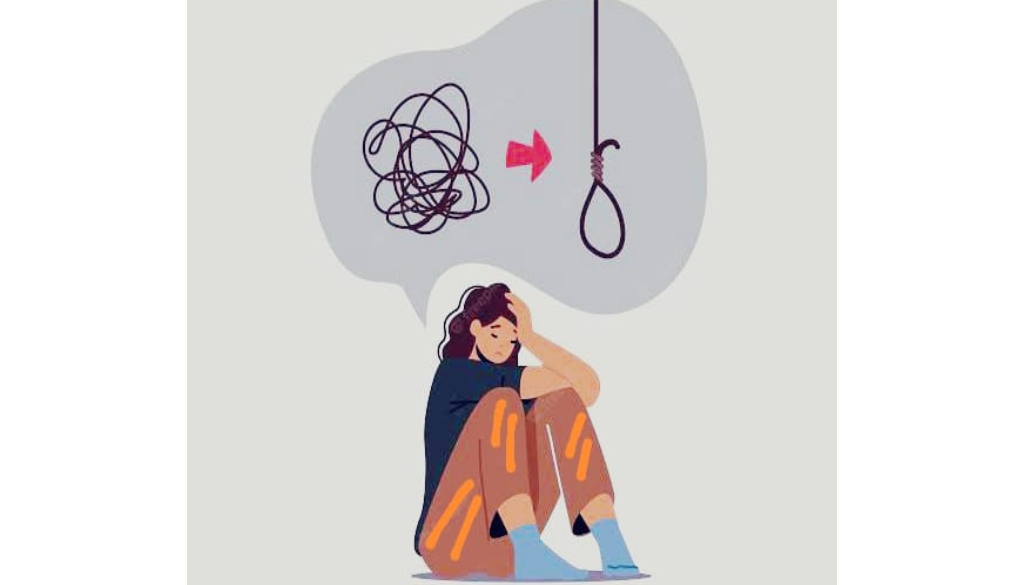Why So Many Suicides Among JEE/NEET Aspirants?

Pune, 02 Sept 2023: The alarming increase in suicides among JEE and NEET aspirants has deeply disturbed the nation. This issue is particularly critical in Kota, where 23 students committed suicide in 2023 alone, and 45 distress calls were made by those expressing a desire to end their lives. In a shocking incident this week, two students from a renowned coaching institute took their own lives on the same day. Reacting to this crisis, the Kota administration has suspended all tests at coaching centers for the next two months. Preventative measures, like the installation of spring-loaded fans and anti-suicide nets in hostels, are underway. But one must question: Are these steps enough? Are we addressing the root of the crisis—be it intense pressure, the coaching culture, parental expectations, or a lack of direction?
Understanding the Root of the Crisis:
A deeper understanding of the competitive landscape reveals that parents often transfer their aspirations onto their children, expecting them to secure spots in esteemed institutions like IIT and AIIMS. Some students, despite their grasp of concepts, are unable to score in internal exams conducted by coaching institutes, due to anxiety or inadequate exam skills. The prospect of confronting disappointed parents, combined with the weight of their financial sacrifices for coaching, intensifies the pressure. The stress escalates for students when coaching institutes demote them based on test performance to lower batches, often lacking the institute’s best teachers. Large batch sizes in many coaching institutions hinder the development of personal bonds between students and teachers. Sometimes if students are able to make bonds with certain teachers, these bonds break if the teacher leaves that coaching institute or if there’s a batch reassignment, leaving students feeling isolated.
The Ideal Approach:
Lalit Kumar, the founder of Prime Academy, conducts a session on the eve of the JEE exam. He states, “Even if you choose not to sit for the JEE tomorrow, the knowledge and skills you’ve acquired during preparation constitute 90% of the benefits. Securing a spot in IIT contributes just an additional 10%. It’s the journey of preparation that truly refines you, while the IIT or AIIMS tag simply provides an added advantage.”
Regardless of JEE and NEET outcomes, the preparation for these entrance exams conditions students mentally at a young age. Benefits of the preparation include honing time and stress management skills through mock tests, developing quick decision-making, building mental stamina, avoiding distractions, establishing a foundation in technical subjects, and enhancing analytical and critical thinking. It’s crucial to see the bigger picture. Esteemed institutions like IIT or AIIMS provide a very nice launching pad, but admission there doesn’t guarantee success. Conversely, not getting in doesn’t mean failure. Many individuals have soared without degrees from IIT or AIIMS. The essence lies in thoroughly understanding the 11th and 12th-grade syllabuses without succumbing to outcome-related stress. If all goes well, one might secure a seat in top colleges like IIT or AIIMS. Otherwise, other degree colleges present ample opportunities to apply the skills learned during two years of coaching.
“Students vary in their strengths and proficiencies. Some might not excel in time-bound exams but impress with longer-term projects, spending months working in labs. While some students adeptly link concepts and excel in subjects like rotational motion, others with a strong memory shine in inorganic chemistry. Over time, these strengths can evolve and adjust. Hence, it wouldn’t be wise to judge solely based on JEE and NEET results,” said Mr. DC Pandey, most renowned author for JEE and NEET physics books.
Parent’s Role in Shaping Perspectives:
Parents, your role in your child’s educational journey extends far beyond just opening your wallet for coaching institute fees. Parents should create a supportive environment through realistic expectations and by encouraging friendly communication with their children. Praise their hard work and effort, not just their final scores. Keep an eye on who your child hangs out with; friends can have a strong influence. Engage with their academic journey, attend parent-teacher meetings, and be the pillar of support they can lean on. While choosing a coaching institute for JEE or NEET, remember: Students effectively benefit from the faculty team, not by the brand of the coaching class. So, parents should choose a coaching institute carefully to ensure the same set of experienced teachers will teach throughout the entire course. Such continuity doesn’t just facilitate learning; it develops invaluable student-teacher bonds. These bonds can be the difference between a child battling stress alone and one who has trusted mentors to turn to, mitigating anxiety and depression with personalized advice.
Recommendations for Coaching Classes:
Medical services and education shape futures and save lives. Placing profit over people in these sectors is more than just an ethical lapse—it’s a tragedy with consequences that can last lifetimes. Students who struggle in internal tests for JEE and NEET coaching require additional assistance. Yet, instead of receiving this help, they are often demoted to batches with less seasoned teachers. On the other hand, high-achieving students are provided with top-notch resources.
Interestingly, students who don’t perform well in internal exams often enroll by paying a much higher fee, whereas toppers typically enroll for free. They are even paid to attend classes and receive VIP treatment. This clear disparity between the ‘mass’ and the ‘class’ negatively affects the vast majority of students in the ‘mass’ group. The ‘class’ segment achieves high ranks and is heavily advertised to attract the ‘mass’ group, who, paradoxically, are the primary sources of revenue. While this approach might maximize profits for institutes, it often places significant stress on and is very demotivating for most students.
While rewarding high achievers with additional resources and exposure to challenging problems is essential, low-performing students require more specialized attention from experienced faculty members. Constructive criticism can be helpful to a degree, generating positive pressure and encouraging effort and improvement. However, demoting these students to lower batches can severely damage their confidence and may even lead to depression.
The ideal way to prepare for a competitive exam is to enjoy the learning process, treat question practice as a puzzle-solving session, surround yourself with like-minded individuals, have fun, develop healthy competition, and support one another. Enjoy the journey of entrance exam preparation which is much more important than the final destination. Always remember to keep smiling.








